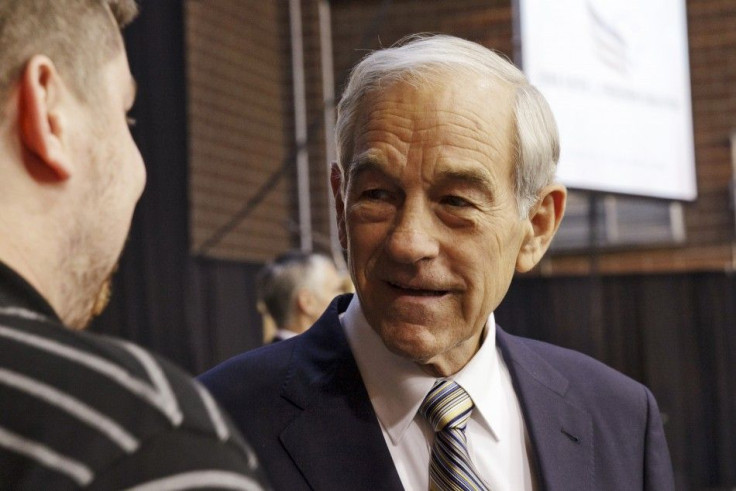Ron Paul 2012: Do Ohio Straw Poll Results Mean He Can Win?
ANALYSIS

When U.S. Rep. Ron Paul, R-Texas, won the Ohio straw poll in a landslide on Saturday, it sparked another round in a perennial debate over whether the Texas congressman should get more attention as a viable presidential candidate.
It is not a simple question. Straw polls alone say very little about the state of a race. It is clear that Paul is no longer on the fringe of the Republican Party, but he has not really entered the mainstream, either. And while he may be building a powerful movement for future election cycles, that doesn't mean he is a viable candidate for next year's election.
Paul received about 54 percent of the 428 votes cast in the Ohio straw poll, managing an outright majority in a race with eight candidates -- not an easy feat. His vote total was more than twice the 26 percent that Herman Cain received and a full six times the 9 percent that third-place finisher Mitt Romney received.
He has also won numerous other straw polls, and the lack of media attention to those victories infuriates his supporters.
But statistically, straw polls simply are not reliable indicators of who will win a party's nomination.
Straw Polls: Not As Indicative As Primaries
The sample size is one problem. Only 428 Republicans participated in the Ohio straw poll, which cost $25 per person. That is a tiny fragment of the number of voters that will turn out for the primary election next year, and substantially fewer than participated in straw polls in Iowa and Florida.
More importantly, though, those 428 voters are not representative of the full Republican electorate in Ohio. Even a small poll can be statistically valid if participants are randomly chosen, but straw poll participants are not randomly chosen.
By nature, straw polls attract homogeneous groups of the most partisan voters, in the same way that readers who have the strongest opinions on a news article or YouTube video are the most likely to comment on it. More moderate voters are unlikely to pay a fee -- even a small fee -- to participate in a nonbinding poll, so the results tend to be skewed toward anti-establishment candidates who have little chance of winning among the party's rank and file.
Paul does well because the straw poll participants are very partisan Republicans, much farther to the right and libertarian than supporters of the other candidates, Jamie Chandler, a political science professor at Hunter College in New York City, told the International Business Times.
This is not just about Ron Paul, though: all straw poll results should be taken with a grain of salt.
Take the Ames Straw Poll in Iowa, for instance, which was held in August. U.S. Rep. Michele Bachmann, R-Minn., won because the most active and outspoken Republicans in Iowa tend to be social conservatives. Her base was passionate and mobilized, and the poll results reflected that -- but they did not reflect the extent of her support among all Iowa Republicans, as her subsequent collapse in the polls has affirmed.
Paul: Dedicated Sliver, Little Else
Paul has collected numerous straw polls victories, but he has not been able to match that success in the larger arenas of state and national opinion polls.
His standings in opinion polls are respectable, and he has maintained a steady level of support in a way that only he and Mitt Romney have been able to do: that is, he has not seen the precipitous spikes and drops in support that most other candidates have. His base is solid, and it has turned out reliably for straw polls -- but he has not been able to translate his multiple wins into expanding his campaign to be competitive with the current front-runners, Chandler said.
That is to say, Paul's victory in the Ohio straw poll is not a breakthrough, but rather a continuation of the same trend that has been evident throughout the Republican primary cycle. His supporters are highly passionate and their numbers are growing, but there just aren't enough of them for Paul to be a serious challenger in next year's primaries and caucuses.
His campaign is far from futile in that it could well set the stage for future elections, in which Paul or a similar candidate could make a viable run.
Paul's real strength in this election cycle is to promote libertarian ideas that the mainstream candidates ignore, Chandler said. At some point in the future, it's likely that Paul's philosophy will become the dominant focus of the Republican Party, as Paul has a large share of support of younger Republicans.
Ten years from now, he said, those voters may control the party.
But that is 10 years from now, not today.
© Copyright IBTimes 2024. All rights reserved.











